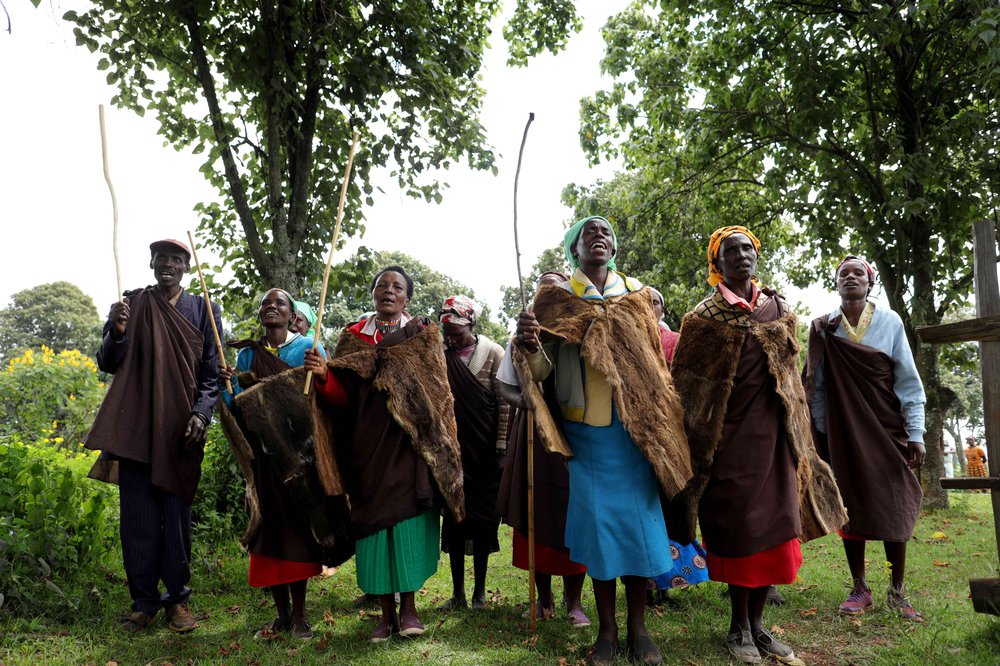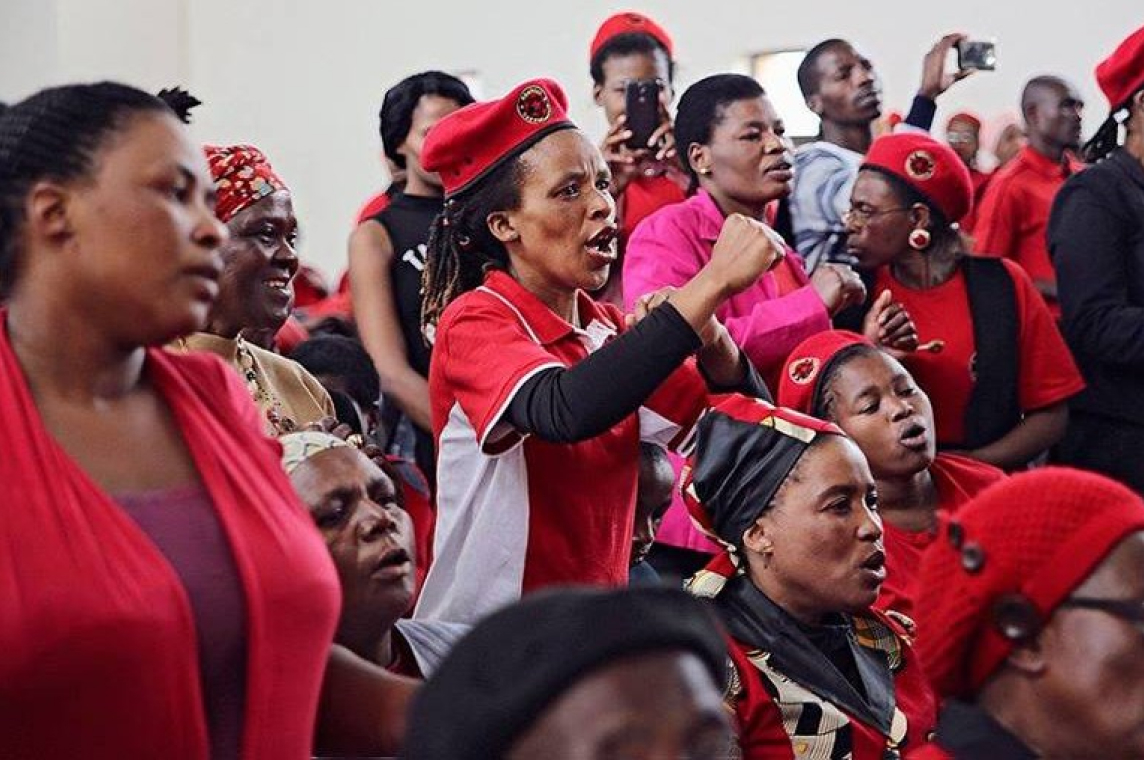La Red-DESC tiene sus orígenes en la década de 1990, cuando un pequeño grupo de movimientos sociales, ONG de derechos humanos y activistas se unieron al reconocer que muchas de las injusticias que enfrentaban sus comunidades eran cada vez más globales y tenían causas estructurales comunes. Fundada en 2003, la Red surgió como un espacio para que sus miembras y miembros conectaran sus luchas a través de distintas regiones y abordaran estos desafíos, que a menudo son sistémicos. Como se destaca a continuación, las reuniones estratégicas de toda la Red han sido momentos clave para definir la dirección política e institucional de la Red-DESC en su conjunto.

The COVID-19 pandemic delayed our next Global Strategy Meeting (intended for 2021/2022), as well as hindering evolving campaign efforts like the Women’s Global Strike, which ultimately became a powerful hybrid event on 8 March 2020. Yet a series of discussions in working groups and then as a full Network led to ESCR-Net’s Global Call to Action in response to Covid-19, launched on 1 May 2020. The Global Call served as a blueprint for new advocacy focused on care and debt, as well as public healthcare and access to vaccines and treatment, and consolidated work on climate justice, corporate capture, and civic space. This advocacy connected accountability for abuses with demands for transformative change to the systems and structures that made the magnitude of the pandemic and related crises predictable. Notably, this did not constitute a substantial departure from ESCR-Net’s collective demands pre-Covid, but rather a reaffirmation of the systemic analysis and mandate highlighted in ESCR-Net’s Common Charter for Collective Struggle and the shared objectives developed by members at our last Global Strategy Meeting.
Social movement and Indigenous Peoples leaders, campaigners and litigators – 140 representatives of ESCR-Net member organizations from over 40 countries – utilized ESCR-Net’s third Global Strategy Meeting in Buenos Aires, Argentina, in November 2016, to chart a course towards transformative, Network-wide action responsive to global conditions, including via a new focus on campaigning and popular political education.
Members discussed, refined, and ultimately affirmed the social movement-led analysis in ESCR-Net’s Common Charter for Collective Struggle. This provided the basis for a daylong facilitated process – working across four languages – that shaped shared objectives to guide the Network for the next five years (2017-2021). Members drove new attention to ESCR in situations of conflict and occupation, as well as pushing intensified work on environmental rights, with a focus on climate justice, drawing on the strengths of various working groups to advance a Network-wide effort to center human rights in efforts to halt climate change and conserve biodiversity.
A second global strategy meeting in Nairobi, Kenya, at the end of 2008, led to strengthening of working groups and to their adoption of annually revised objectives and collective work plans. A series of papers drafted by leading members of different working groups assessed the state of the field in relation to key ESCR themes, forming the basis of an issue of SUR – International Journal on Human Rights and guiding strategic conversations at the meeting. Members also took up honest conversations about the often difficult and problematic relationships between more traditional NGO and social movements emerging from resisting communities.

As a practical demonstration of a deepening commitment to center movement leadership in ESCR-Net, members elected four movement leaders to ESCR-Net’s seven member Board. In the coming period, social movements would help to drive new advocacy confronting dispossession and dynamic spaces like the Peoples’ Forums on Business and Human Rights, as well as attention to implementation of positive legal decisions. In 2008, members also formalized the System of Solidarity, allowing the secretariat to act in their name when a fellow member or their community was under urgent threat.
ESCR-Net was launched in Chiang Mai, Thailand in 2003. Initiated with a three-day social movement gathering, this inaugural meeting examined a series of global injustices driven by corporate and finance capital, imposed via IMF structural adjustment plans and trade agreements, and enforced via military might. This meeting also led to the election of ESCR-Net’s first formal Board – chosen from and by members based on principles of gender and regional balance and inclusion of social movements – and to the adoption of a Governance Document. This document and its core principles addressed legacies of colonialism and patriarchy, as well as recognized the importance of movements – emerging from and accountable to communities affected by injustice–in the face of massive power imbalances. The Women and ESCR Working Group, advocating substantive equality, and the Strategic Litigation Working Group, advancing the justiciability of ESCR, were formalized as the first cross-regional, member-led spaces, alongside the Social Movement Working Group. Within the next year, these were complemented by the Corporate Accountability Working Group, advancing corporate regulation with strong social movement and Indigenous Peoples’ leadership, as well as the Economic Policy Working Group, targeting export credit agencies and confronting unjust trade agreements.
